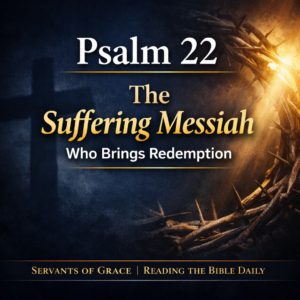⏱️ Estimated Reading Time: 7 min read
“Judge Not?” What Jesus Really Meant
How Matthew 7 has been twisted to silence truth—and why righteous judgment is essential for faithful Christians today.
By Dave Jenkins | Scripture for Life Series
“Judge not.”
It may be the most quoted Bible verse in our culture—especially by those who have no desire to submit to the authority of God’s Word. Today, it’s often used as a reflex to silence moral clarity, especially when Christians speak plainly about sin.
During Pride Month, this verse gets weaponized. Christians who speak clearly about biblical sexuality, sin, or repentance are swiftly accused of violating Jesus’ command not to judge.
But here’s the problem: this cultural use of “judge not” is not just shallow—it’s theologically bankrupt. It twists the very words of Christ to silence the truth. If you quote Romans 1 or 1 Corinthians 6, or even speak gently about repentance, someone will almost certainly respond with: “Didn’t Jesus say not to judge?”
So what did Jesus actually mean? And why is reclaiming righteous judgment essential for the Church today—especially in a culture that celebrates confusion as courage?
1. When “Judge Not” Is Used to Silence the Truth
Jesus’ words in Matthew 7:1 have become a slogan for moral relativism. Our world doesn’t mind spirituality, so long as it never speaks against sin. Pride Month, in particular, turns up the volume: LGBTQ+ identities are not just accepted but celebrated. And anyone who doesn’t join the celebration is labeled hateful.
Consider the backlash against Christian influencers who simply post Bible verses. The verse doesn’t even need to mention sexuality—its presence alone provokes outrage. In today’s climate, biblical conviction is treated as cruelty.
Here’s the irony: everyone makes judgments all the time. We judge politicians, pastors, parents, athletes, and one another. We judge tone, facial expressions, and motivations. But when a Christian lovingly calls sin what God calls it, suddenly we’re told: Judge not.
This isn’t about eliminating judgment—it’s about eliminating God’s judgment.
2. What Jesus Actually Taught in Matthew 7
In Matthew 7:1–5, Jesus said:
“Judge not, that you be not judged… First take the log out of your own eye, and then you will see clearly to take the speck out of your brother’s eye.”
This is not a ban on all judgment—it’s a warning against hypocritical judgment. Jesus condemns those who use God’s standards to judge others while ignoring their own sin. He’s calling for self-examination, not silence.
Just a few verses later (v.15), Jesus urges believers to beware of false teachers—which requires discernment. And in John 7:24, He says:
“Do not judge by appearances, but judge with righteous judgment.”
Paul echoes this in 1 Corinthians 2:15:
“The spiritual person judges all things…”
Biblical judgment isn’t prideful—it’s humble, careful, and rooted in Scripture. It discerns truth from error and protects the Church from deception.
3. Pride Month and the Inversion of Morality
Each June, we watch Romans 1 unfold in real time:
“Though they know God’s righteous decree that those who practice such things deserve to die, they not only do them but give approval to those who practice them.” (Romans 1:32)
The celebration of Pride isn’t morally neutral—it’s a cultural catechism. It trains hearts and minds to celebrate sin and shame truth. What began as a plea for tolerance has become a demand for affirmation.
Children are exposed to drag performances. Rainbow flags fly in some churches. Pastors are pressured to compromise. Christian teachers are fired for refusing to use preferred pronouns or affirm Pride materials in schools. The cost of truth-telling is rising.
Isaiah warned us:
“Woe to those who call evil good and good evil…” (Isaiah 5:20)
In this environment, calling sin what it is will cost you. But silence is not an option.
4. The Church’s Theological Drift
Many churches today have lost their nerve. To avoid offense, they downplay sin, soften doctrine, and repackage the gospel as a therapeutic message of affirmation.
- Tim Keller emphasized winsomeness, but at times, clarity suffered.
- Andy Stanley suggested we should “unhitch” from the Old Testament.
- Progressive leaders reframe biblical commands as outdated cultural baggage.
This is not compassion. It is compromise.
As Spurgeon once said:
“Discernment is not knowing the difference between right and wrong. It is knowing the difference between right and almost right.”
We must not trade truth for relevance. The gospel is offensive—but it is also the power of God for salvation (Romans 1:16).
5. Church History and Righteous Judgment
Throughout church history, faithful Christians have stood against cultural pressure with theological clarity and moral courage.
- Athanasius stood firm against Arianism when the world embraced heresy.
- Martin Luther exposed Rome’s false doctrine, risking his life.
- John Calvin taught that pastoral care includes church discipline.
- J.C. Ryle warned against vague teaching that avoided controversy.
- Thomas Case, a Puritan, wrote: “Afflictions are God’s furnace to refine His gold, not to consume His treasure.”
They understood: biblical judgment is not about self-righteousness—it’s about restoration, truth, and love.
6. Five Ways to Practice Righteous Judgment
- Know the Word Deeply
Let Scripture, not sentiment, shape your judgment. (Psalm 119:105) - Guard Your Heart from Hypocrisy
Start with the log in your own eye. (Matthew 7:5) - Speak the Truth in Love
Don’t yell. Don’t flinch. Don’t flatter. (Ephesians 4:15) - Expect Rejection, Not Applause
The world hated Jesus. It will hate you too. (John 15:18) - Love Enough to Warn
Faithful are the wounds of a friend. (Proverbs 27:6)
7. Final Call: Reclaim the Courage to Judge Righteously
We live in an age where cowardice is called compassion and compromise is marketed as wisdom. But Christ hasn’t called His Church to win popularity contests—He has called us to faithfulness.
To preach the gospel without repentance is to deny the cross.
To affirm sin in the name of love is to deny Christ.
As a ministry leader and a writer, I know these conversations are costly. They require patience, clarity, and courage. But they’re essential. God’s Word isn’t just true—it’s good.
When we speak that truth in love, we are not being judgmental. We are being faithful.
Let us judge righteously, speak boldly, and love truthfully—not with arrogance, but with urgency. Because the most hateful thing we could do is remain silent while the world walks off a cliff.
❓ Frequently Asked Questions
Does “Judge not” mean Christians should never judge?
No. Jesus condemned hypocritical judgment, not all judgment. In Matthew 7:1–5, He warns against judging others without examining your own heart first. But just a few verses later (v.15), He commands discernment about false teachers.
Did Jesus ever tell people to judge?
Yes. In John 7:24, Jesus says:
“Do not judge by appearances, but judge with righteous judgment.”
Biblical judgment is not about condemnation—it’s about discernment rooted in truth and love.
Is it hateful to speak about sin during Pride Month?
No. Calling sin what God calls it is not hate—it’s love. Proverbs 27:6 says, “Faithful are the wounds of a friend.” Scripture calls us to speak the truth in love, even when the culture resists it.
How can I know if my judgment is righteous?
Check your heart. Ask:
- Am I grounded in Scripture?
- Am I speaking with love and humility?
- Am I examining my own sin first?
Biblical judgment begins with repentance and is motivated by restoration.
📖 Further Study
- John 7:24
- Romans 1:18–32
- 1 Corinthians 2:15
- Matthew 7:1–5
- Galatians 6:1
- James 5:19–20
📚 Explore More from the Scripture for Life Series
Hungry for more biblical clarity in today’s confused world?
👉 Browse all articles in the Scripture for Life series
Each piece is rooted in God’s Word and written to help you think theologically and live faithfully in every season of life.



